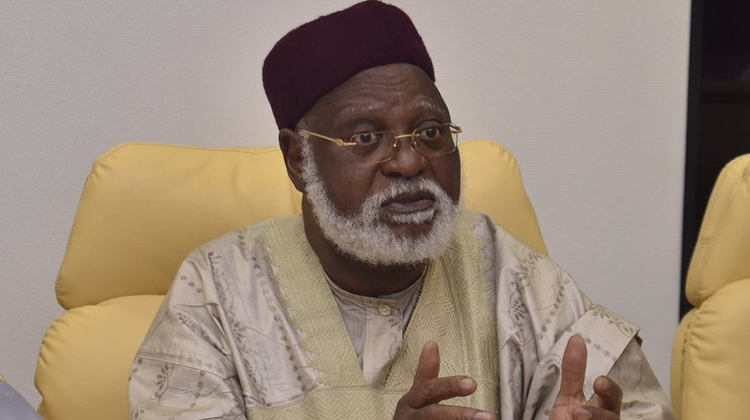Nigeria’s former Head of State, Abdulsalami Abubakar has raised concerns over the intended removal of subsidy on premium motor spirit (PMS).
Speaking at the 19th Daily Trust Summit in Abuja, General Abdulsalami, said the country is facing challenges on multiple fronts and a fuel subsidy removal will only compound the situation.
The Federal Government has said it plans to discontinue the payment of fuel subsidy by June but the move has been rejected by several stakeholders, including the Nigeria Labour Congress.
Read Also: Subsidy Removal: NLC Fixes Dates For States, National
‘Unemployment or underemployment remain at record levels,’ General Abdulsalami said. ‘And over 80 million Nigerians are still caught up in needless poverty.
‘All of these tend to have negative effects on security.
‘In fact, Nigeria now faces a food security crisis that is compounded by the COVID-19 global pandemic and the banditry in many states in Northern Nigeria.
‘All of these have disrupted the fragile value chains across the country, and negatively impacted the ability of Nigerians to produce, process and distribute food.
‘The result is a continued rise in the prices of food items, beyond the reach of many Nigerian families.
‘On top of all these, fuel prices are expected to rise significantly in the coming months as announced last November by the NNPC.
‘We all know when this happens, as the government has planned, it will push many millions deeper into poverty.’
Africa Today News, New York had earlier reported that Nigeria’s Senate President, Senator Ahmed Lawan has submitted that President Muhammadu Buhari did not at any point direct anyone in his administration to implement the removal of petroleum subsidy.
It would be recalled that the Minister of Finance, Budget and National Planning, Hajiya Zainab Ahmed, had last October, announced that the federal government made provision for petrol subsidy only for the first six months of 2022 as the government looked towards complete deregulation of the sector.
AFRICA TODAY NEWS, NEW YORK

